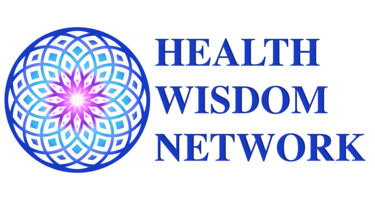Harmonising Inflammation: Natural Approaches for Balance and Healing

Inflammation, often misinterpreted as solely harmful, is a fundamental aspect of our body's defence mechanism. It's the body's natural response to injury, infection, or stress, playing a pivotal role in initiating the healing process. However, when inflammation becomes chronic or uncontrolled, it can lead to a cascade of health issues. Exploring natural approaches to support inflammation balance and healing can be a game-changer in nurturing overall well-being.
Understanding Inflammation: The Good and the Bad
Its important to recognise that inflammation is a double-edged sword. Acute inflammation is the body's rapid response to injury or infection. It's what causes redness, swelling, and warmth at the site of injury, and it's a sign that the immune system is diligently at work. However, chronic inflammation—lingering over time—can become destructive. It's linked to conditions such as cardiovascular disease, diabetes, autoimmune disorders, and even cancer.
Inflammation is a natural reaction our immune system creates in response to a stimulus, whether bacteria, tissue injury, foreign material or toxin, to initiate a breakdown and repair process within the body.
Without acute, short term inflammation, our body would not heal or be able to defend itself against cell threats. Our white blood cells create and use molecules like hydrogen peroxide, that can oxidize a substance, therefore changing its chemical structure. Oxidation can help breakdown foreign bodies for disposal.
Our immune system and cells also have a corresponding anti-inflammatory, antioxidant response to balance and stop the oxidative inflammatory reactions when necessary.
Inflammation needs to be managed as it tends to be self-perpetuating. This is due to the release of molecules from our immune cells called inflammatory cytokines.
Cytokines are messenger molecules our immune system uses to signal its activity. With increasing exposure to inflammatory stimuli, our body can get overwhelmed and acute inflammation in isolated areas, can turn into systemic or chronic inflammation.
With our immune system on hyper alert mode, it can become over reactive to perceived threats that would normally be tolerated. This can lead to the initiation of inflammation anywhere in the body. This is known as loss of self-tolerance and is the basis of autoimmunity.
In many circumstances, however, the body is reacting intelligently to body stressors like intracellular toxicity, for instance. This is where some collateral damage can occur as inflammatory processes can spread out into tissue surrounding the area of concern.
TRIGGERS OF INFLAMMATION:
-
Tissue Injury
-
Poor Posture
-
Chronic Stress
-
Microorganism toxins - Bacterial, Mould, Yeast
-
Food Allergies and Intolerances
-
Gut Hyper-Permeability AKA ‘Leaky Gut’
-
Excess Refined Sugars
-
Elevated Blood Sugar and Insulin
-
Fatty Liver
-
Excess Alcohol
-
Excess Artificial Bluelight Exposure
-
Circadian Rhythm Mismatch
-
Environmental Toxicity
-
Agri-Chemicals, Food, Pesticides
-
Excess Metabolic Waste
-
Mould - Mycotoxins
-
Heavy Metals
-
Nutrient Deficiencies
-
Processed Vegetable Oils – Trans Fats and Omega 6 Dominance
-
Certain Medications and Recreational Drugs
-
Xenoestrogens
-
Synthetic Personal Care Products and Cosmetics
-
Gut Dysbiosis - Endotoxin
-
Autointoxication - Small Intestine and Colon Reabsorption
-
Emotional Trauma
WHAT IS OXIDATIVE STRESS?
Oxidative stress is the process whereby unbalanced, reactive molecules known as free radicals, have built up excessively within the body, causing damage to cellular components via oxidation reactions. Chronic inflammation leads to oxidative stress.
Oxidation is the mechanism used for inflammatory processes. When the input of our anti-inflammatory, antioxidant response to manage inflammation is insufficient, we move into a more pro-oxidative state. Oxidative stress occurs when a molecule with an unpaired electron, known as a free radical or reactive oxygen species (ROS), steals an electron from another molecule, therefore destabilising it. This leads to a free radical cascade, damaging body tissue as a result.
As you can see, there's a delicate dance the body must balance with inflammatory processes. This is known as regulating Cellular Redox Balance and is crucial to optimal cell function.
ANTI-INFLAMMATORY IMMUNE BALANCE
This balance comes from the anti-inflammatory side of immune function and our endogenous (made within us) protective antioxidants like Glutathione, Super Oxide Dismutase (SOD) and Catalase to manage the oxidative stress.
There is increasing recognition that many health conditions we are seeing increase today are being driven by the dominance of pro-inflammatory and oxidative processes.
SUPPORTING INFLAMMATION BALANCE
Incorporating natural strategies into your lifestyle can play a significant role in supporting inflammation balance and facilitating the body's healing processes. Based on my research and understanding, here are a few suggestions. Many of these have been explored in further depth else wear:
1. Embrace an Anti-Inflammatory Diet: A diet rich in whole foods, particularly those with anti-inflammatory modulating properties. Avoiding or minimising processed junk foods.
2. Harness the Power of Herbs and Spices: Certain herbs and spices boast potent anti-inflammatory properties. Turmeric, for instance, contains curcumin, a compound renowned for its anti-inflammatory effects. Ginger, cinnamon, and garlic are also great additions to your culinary repertoire. Increasing dietary phytonutrients like curcumin, quercetin, sulforaphane from colourful fruits and vegetables, egg yolks, liver, and other nutrient dense foods can help to modulate the expression of anti-inflammatory genes
3. Balance omega 6 and omega 3 ratio: Omega 3 DHA and EPA rich foods like fish, organic grass-fed animal products, oysters or even supplement with high quality algae or krill oils. Chia and hemp seeds provide a good source of ALA the plant form of omega 3 which the body can convert into some of the longer chain DHA and EPA
4. Stay Hydrated: Adequate hydration supports the body's detoxification processes, allowing for the elimination of waste and toxins that can contribute to inflammation. Water, herbal teas, and natural fruit juices can aid in this process. Structured coherent water with minerals is key.
5. Engage in Regular Exercise: Exercise is more than just a physical activity—it's a natural anti-inflammatory agent. Regular physical activity helps regulate the body's inflammatory response and promotes overall wellness.
6. Cultivate a Mind-Body Connection: Practices such as yoga, meditation, and deep breathing not only reduce stress but also promote relaxation, which can aid in inflammation balance. Chronic stress is closely linked to heightened inflammation levels.
7. Quality Sleep Matters: Prioritize sleep as a crucial aspect of healing and maintaining inflammation balance. During sleep, the body repairs and rejuvenates itself, helping to regulate immune responses and inflammation.
8. Mindful Supplementation: While I acknowledge that nutrients are best obtained through a balanced diet, certain supplements can aid in supporting inflammation balance, especially those that improve metabolism overall. Mitochondrial health is key here.
9. Maintain a Healthy Gut: Research increasingly highlights the connection between gut health and inflammation.
10. Practice Moderation and Avoid Toxins: Excessive alcohol consumption and smoking can exacerbate inflammation. Limiting or avoiding these toxins can significantly contribute to inflammation balance.
11. Seek Professional Guidance: They can provide personalized guidance and recommend appropriate suggestions.
Inflammation as a Symphony: Finding Harmony Within
I feel that by viewing inflammation as a symphony, one where various factors interact and contribute to its balance, we can truly embrace a holistic approach to healing. However, everyone's symphony is unique so the journey to balance inflammation is an individual one.

0 comments
Leave a comment
Please log in or register to post a comment